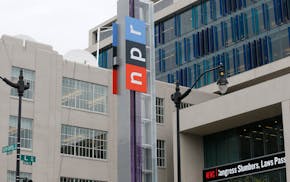NEW YORK - It's a new twist in the financial crisis: A major bank on the verge of a last-minute rescue -- only this time the bailout isn't coming from the government.
A proposed $3 billion rescue of commercial lender CIT Group by its bondholders is the first time since the banking crisis erupted that private investors are stepping in to save a big financial firm without federal help or oversight.
The deal, details of which were still being worked out Monday, suggests the appetite for risk in the private sector is increasing, analysts said. It also could provide a framework for other financial rescues if Washington is turning off the bailout spigot.
The tentative deal was approved by CIT's board Sunday night, according to two people briefed on the talks who requested anonymity because negotiations were confidential. Details were still being ironed out, with no guarantee the plan wouldn't fall apart.
Still, the deal, along with robust earnings reports last week by several big banks, raise hopes that private capital can start flowing again into the beaten-down banking industry, analysts said. That was all but unthinkable just a few months ago.
"You've got private money coming in and essentially giving a vote of confidence" in banks' future profitability, said Vincent Reinhart, former director of the Federal Reserve's monetary affairs division. "It's encouraging."
CIT lends money to nearly a million small and midsize U.S. companies. It was forced to turn to bondholders for help after the government refused to save the company last week, a sign the administration is pulling back on costly and unpopular bank rescues.
The lifeline for CIT, whose clients include Dunkin' Donuts franchises and clothing maker Eddie Bauer, aims to sustain the company long enough for it to restructure its debt. It does not guarantee CIT will avoid bankruptcy. The company has a $1 billion payment due in August.
The deal would give CIT $3 billion of short-term financing at an interest rate of about 10.5 percent, said another person close to the negotiations who was not authorized to discuss the matter publicly.
Investors embraced the proposed deal. Shares of CIT jumped 55 cents, or 78 percent, to $1.25 Monday.
"It tells me that the appetite for risk is increasing, and people are betting that a recovery is coming," said William Larkin, fixed-income portfolio manager at Cabot Money Management in Salem, Mass.
CIT representatives didn't immediately return calls seeking comment on the financing deal.
Had CIT been allowed to collapse, some experts feared it would have dealt a crippling blow to an economy still bleeding hundreds of thousands of jobs a month despite a nearly $800 billion federal stimulus program.
The retail sector would have been hit especially hard. CIT serves as short-term financier to about 2,000 vendors that supply merchandise to 300,000 stores, according to the National Retail Federation. Analysts say 60 percent of the apparel industry depends on CIT for financing.
"If CIT had gone under, that would have left a huge hole in the supply chain," said Craig Shearman, a spokesman for the National Retail Federation.
By not getting involved, the administration gambled CIT was not so enmeshed with the financial system as companies like Citigroup, Bank of America and others that accepted federal bailout money, analysts said.
Daniel Wagner reported from Washington.
Abu Ghraib military contractor warned bosses of abuses 2 weeks after arriving, testimony reveals
Biden vows to shield US steel industry by blocking Japanese merger and seeking new Chinese tariffs
Georgia's parliament votes to approve so-called 'Russian law' targeting media in first reading
Jill Biden says an agreement to let federal employee military spouses work from overseas is overdue
